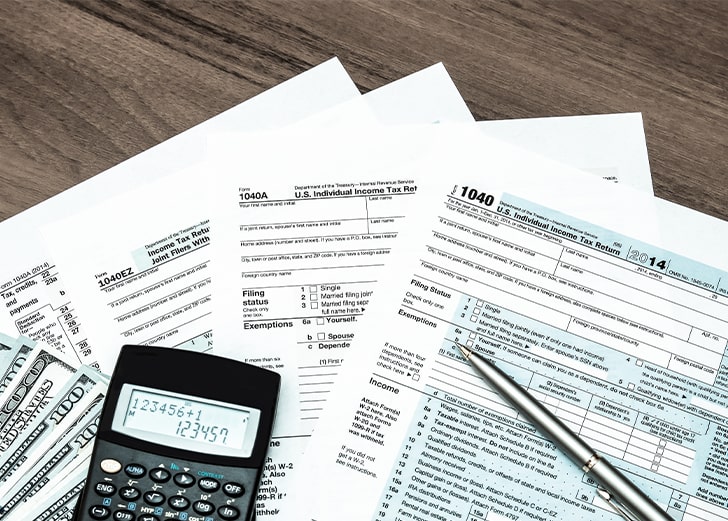2022 is nearly over, which may be hard to believe. As the end of the year looms large, year-end tax planning should be at the top of your mind. While it can be arduous, gathering your basic taxable income information, capital gains or loss information, or any small business tax details, if applicable, is crucial.
What Does Year-End Tax Planning Require?
While planning for taxes now may seem overly preemptive, considering they aren’t due until April of next year, figuring out your tax planning now can save you time and money. The most effective planning strategies at year-end should start with gathering basic information on all your accounts, whether personal banking, Roth IRA or traditional IRA, 401(k), or any other. Pull any items you may be able to take a standard deduction on, along with any information that may have tax-free components, such as charitable contributions.
Key Points to Cross Off When Planning Taxes
Gathering all of the details above is just the first step to preparing to file taxes. Here are a few key points, broken down by some of the most common potential tax-impacted categories, to cross off when getting your taxes in order.
Basic Income
- Consider all your income tax eligible income streams that come with a tax liability.
- Refresh your knowledge of your federal tax rate and state tax bracket to better understand what your obligations will be.
- Taxpayers with little knowledge of taxes may consider taking on a financial tax advisor.
- Check up on your withholding to avoid any interest and penalties.
- Deduct cash donations up to your eligible amount.
Retirement Accounts
- Consider choosing to maximize your 401(k) or any other company retirement plans that you may have.
- Maximize IRA contributions if you can.
- Assuming you are in a low tax bracket, consider converting your traditional IRA to a Roth IRA if beneficial, or consider opening a SEP IRA if you are self-employed.
- Those over 72 should be sure to take their required minimum distribution.
Investments
- The end of the year is a potential time to look at rebalancing your portfolio.
- Determine your capital gains or capital losses based on your investments, potentially selling some positions with a loss to offset massive gains.
- Look at whether or not any mutual funds you are involved with are disbursing sizable capital gains distributions.
By using some of the tips above to prepare yourself, you can get a jump on filing as you begin your taxes in advance of their early 2023 due date.
Meet your tax obligations today
Taxes can be complicated to sort through without the help of a certified professional. Whether you don’t have a great understanding of taxes or you simply want help filing them this year, consider consulting a financial professional. Here at Royal Oak Financial Group, we specialize in tax planning services. Our certified financial advisors can help you gather all the information you need to meet your tax obligations. Don’t hesitate to contact us today to see how our services can benefit you.



